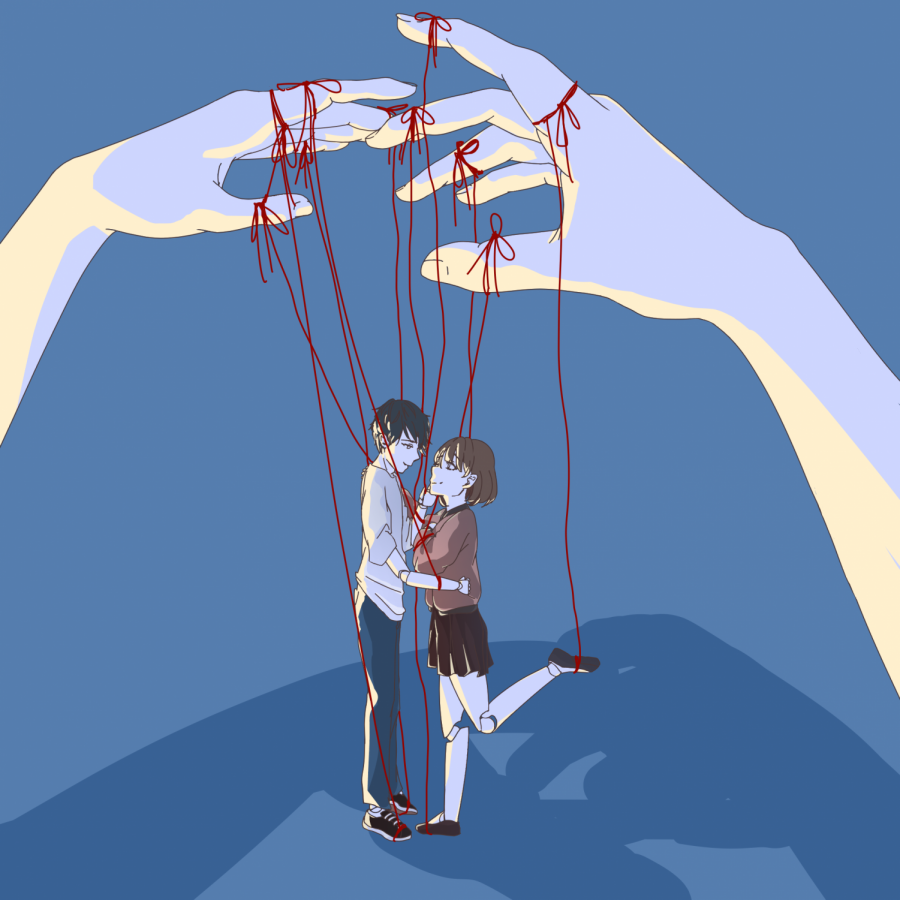Do We Decide Who We Love?
October 5, 2018
Love. It’s mystifying and terrifying; the serotonin and dopamine created in your brain as you undergo this phenomenon translates into unmistakable happiness. Often regarded as the best and worst feeling in the world, love is a mystery, and who we fall in love with may just occur by chance—whether it be at first sight on Tinder or with that cute barista at Starbucks—love is unpredictable, right? Actually, who we love isn’t as broad of a spectrum as we think it is. In fact, from our childhood, how we love and how we want to be loved takes root through the actions and teachings of our parents, and other environmental factors.
Our fathers are usually the first male figure in our lives, and as a result, girls tend to favor partners that share similar traits with their fathers (the same applies to mothers for males). This feeling of familiarity, although we may not recognize it at first, is comforting and makes us trust our partners more. While this instinct is more than natural, we may have a false sense of trust as we fall in love with those who care for us in familiar ways rather than ideal ways. For example, if one had a childhood with a damaging upbringing with destructive dynamics, they are more prone to going down the same path later on in adulthood. One way of avoiding this is by recognizing our impulses. What are our immediate reflexes, and how can we relate what we are and aren’t attracted to to our childhood? This way, we can avoid being blinded by comfort and a false sense of security, and instead see things from a new, lucid angle.
Our very definition of love was formed in our childhood, and we cannot change the way we were raised. However, we are certainly able to change who we end up falling in love with and avoid depending on familiarity-based trust. Although many of us are not yet concerned with finding a partner, this situation can be applied to other relationships as well, such as friendships. How often do we act out childishly when responding to tense situations with our friends? Recognizing our instincts early on and correcting ourselves is a valuable skill to learn, as it will benefit both our romantic and platonic relationships.
To take this subject on a more personal level, I interviewed my peers about their views on love. The responses I gathered range from some students not taking teenage love seriously to others feeling that love embeds itself in every aspect of their lives. Sophomore Dayna Martinez delineated her experience of love as “a nice feeling, it’s like you’re on cloud nine and you feel bubbly. It can also be a little tough at times and isn’t all fun and games. Things come up and become more serious, but you will get through them.” Meanwhile, sophomore Charisse Liu exclaimed how “the absence of people who were there to love me during my childhood prompted me to love people more easily now.” This variety of responses contributes to how our opinions on love are all different and may be a reflection of how we were taught love in our adolescence.
Overall, love can be blind in some aspects, but our very foundation of love and how we perceive it is formed in our childhood. As a result, we have developed habits when responding to our parents that may later manifest into child-like behavior in adult romantic relationships. By learning how to adopt a more mature approach to love and to our partners, we are able to achieve the love we crave, and most importantly, need.

